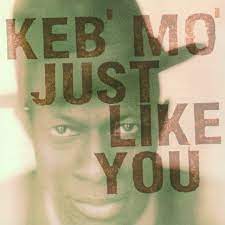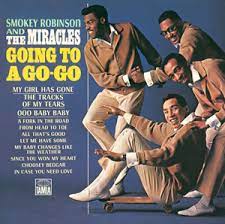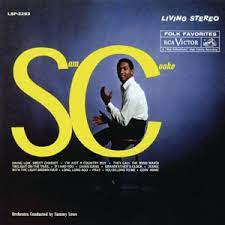Tutorial Pricing: $3.25ea OR any 10 for $10
(use code "Any10410" at checkout)
Paid Requests for $25ea
(comes with any 8 freebies -> so 9 for $25)
100's Of Free Demos & Chord Sheets
Songs Of Ben E King
On The Acoustic

Embark on a musical journey with timeless classics by the legendary Ben E. King as we delve into the soulful melodies of 'Seven Letters,' 'Spanish Harlem,' and 'Will You Still Love Me Tomorrow' on the acoustic guitar of this songs of Ben E King page.
Whether you're a beginner eager to strum the chords or a seasoned player looking to add these iconic songs to your repertoire, my free demos and chord sheets for each lesson provide a perfect starting point. Immerse yourself in the rich harmonies and emotive lyrics that define Ben E. King's legacy.
For those seeking a more in-depth experience, unlock the full acoustic tutorial for each song for a small fee, and let's make music together!"
Jump links to quickly access the songs sections.
Who is Ben E King?

Ben E. King was a famous singer known for his smooth voice in soul and R&B music. He became well-known as the lead singer of The Drifters, a group that had hits like "Save the Last Dance for Me."
In the early 1960s, Ben E. King started his solo career and became even more famous for his song "Stand by Me," which is still loved today. Besides this hit, he had other successful songs like "Spanish Harlem" and "Don't Play That Song (You Lied)."
Ben E. King was not only a singer but also a songwriter, and he wrote songs for other artists. He got into the Rock and Roll Hall of Fame in 1988 as part of The Drifters. Even though he passed away in 2015, his music, especially "Stand by Me," continues to be cherished and remembered.
Songs Of Ben E King
Lyrics, Chords, Demos & Tutorials
1. Seven Letters

Seven Letters is a song by Ben E. King that was released as a single in 1965. While it didn't become as popular as some of his other hits, like "Stand by Me," it still did well on the Billboard Hot 100 chart.
The song is also the title track of Ben E. King's 1965 album, "Seven Letters." This album features a collection of songs, and "Seven Letters" is one of the notable tracks. The lyrics of the song tell a story about receiving seven letters that bring both joy and heartache.
Even though there might not be a traditional music video for the song from that time, the recording showcases Ben E. King's soulful and expressive vocals. It's a piece of his musical legacy, offering a glimpse into the diverse sounds of soul and R&B during the mid-1960s.
This number I play in standard tuning with a root down up root up down up rhythm pattern or play a root down up bass up down up
pattern. A bit of lead here with the chords G, D, D7, G7 and a C.
Chords & Lyrics
Jump To Top
2. Spanish Harlem

Spanish Harlem stands out as a significant hit for Ben E. King, marking his success as a solo artist after leaving The Drifters. Released in 1960, the song became his first hit as a solo performer. It climbed to #15 on the R&B chart and reached #10 on the Pop chart, showcasing its widespread appeal.
The track is the title song of King's 1960 album, "Spanish Harlem." Known for its romantic and vibrant melody, the song has enduring popularity. While music videos in the traditional sense were not as common in the early 1960s, "Spanish Harlem" was often performed on television shows, contributing to its recognition.
The song's unique blend of soulful vocals and a Latin-inspired musical arrangement has made it a classic, and its cultural impact has been celebrated over the years. "Spanish Harlem" remains a standout in Ben E. King's solo career and is cherished for its timeless charm and musical artistry.
Chords needed here are D, G and an A7 with a simple root down up root up down up rhythm pattern in standard tuning. Some lead required.
Jump To Top
3. Will You Still Love Me Tomorrow

Will You Still Love Me Tomorrow holds a special place in music history, originally written by Carole King and Gerry Goffin and first recorded by The Shirelles in 1960. In 1962, Ben E. King included his rendition of the song on the album "Ben E. King Sings For Soulful Lovers."
Interestingly, King chose not to release his version as a single. The song is renowned for its poignant lyrics and emotional depth, exploring the uncertainties of love.
While a traditional music video may not exist for King's rendition due to the era's practices, the enduring popularity of "Will You Still Love Me Tomorrow" lies in its timeless and soulful interpretation by both The Shirelles and Ben E. King.
The track has been covered by numerous artists over the years, cementing its status as a classic in the realm of love ballads.
Play this one in standard tuning and a capo 3rd fret with a root down up root up down up and repeat rhythm pattern. Some lead here with the chords D, Bm, G, A, Gb and a Gbm.
Chords & Lyrics
Jump To Top
Thank you for visiting my songs of Ben E King page and exploring a few of the numbers recorded by the great Ben E King. I hope the info found here was helpful and I'll be adding more of his classic to this page over time.
If you liked this Ben E King page you might also like (click images)
Ben E King - Stand By Me
Motown Rhythm And Blues


